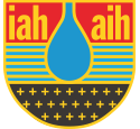Hosted by the IAH’s Portuguese Chapter and IAPG (International Association for Promoting Geoethics) the Geoethics and Groundwater Management congress aimed to appeal to all those working in the many fields relating to groundwater, but contributions were welcomed from a mix of discplines besides science – humanities, law, education, religion, citizenship and the arts. The congress was originally scheduled to run in mid-May 2020 as a conventional face-to-face event; arrangements were on track until late March 2020. Then came the declaration by the World Health Organisation (WHO) regarding the COVID-19 pandemic, soon followed by the state of emergency in Portugal and the likely threat of a more global lockdown. The local organising committee considered the risks and uncertainties for the congress, just as groundwater people in science and engineering are used to dealing with day to day. Knowing that groundwater flow and the plethora of associated questions that motivated the congress were continuing, a guiding motto emerged: “The science must go on”.
 Thus the decision was taken to maintain the fast approaching date and do whatever possible to convert the congress to a fully online five-day event, still in May. The organising committee felt this was important not only to maintain the standing of IAH and IAPG, but also in recognition of the many authors, reviewers and the prospective attendants that had up to that moment demonstrated a strong will to contribute.
Thus the decision was taken to maintain the fast approaching date and do whatever possible to convert the congress to a fully online five-day event, still in May. The organising committee felt this was important not only to maintain the standing of IAH and IAPG, but also in recognition of the many authors, reviewers and the prospective attendants that had up to that moment demonstrated a strong will to contribute.
Effort was made to widen further the participation and to create from scratch a digital solution for a 100% online conference, with pre-recorded video content and accompanying textual information. It was felt that it should emulate as closely as possible the initial concept and the expected face-to-face rich experience with minimum loss, despite just one and a half months in which to organise it. This was certainly ambitious for the team of five people that couldn’t meet in person, but was possible thanks to the commitment and competence of Ex Ordo, the digital solutions company, which as well as continuing to manage the administration, abstracts, etc. built the customised online platform to support the congress on the go, responding to some pretty demanding specifications at very short notice. The organising committee was also able to count upon the extraordinary help of the many reviewers and the hundreds of authors that contributed. Late submissions were reviewed and all of the presenters positively responded to the request to submit early their presentations, with narration included. Not only that, but to adhere to a strict template for conversion in video format for the congress platform. Doing this without flaw in so short a time and during difficult times for all truly deserves the highest praise.
And so it came that just a few hours ahead of opening, the full structure and contents were ready to be put online, without sufficient time for testing. During the congress week, contents were being released on a day-to-day basis supported by the fully functional and coherent online solution. The system was programmed to put the contents online in a sequence following a schedule beginning at 9:00 Universal Time. This resulted in the sessions being activated to the comfort of the first expected attendants of each day, in Oceania and East Asia. This daily opening was synchronous worldwide and thereafter all inaugurated contents remained active any time. The congress ran smoothly in the inaugural week with an attendance that reached 178 registrants, with the plan that the content remain online until mid August. Those registered have been able to appreciate the content in comfort, anytime, anywhere!
The organising committee was pleased to see that following this congress, and inspired by its efforts, the Hydrogeology Group of the Geological Society of London organised a webinar on hydrogeoethics a few weeks later which engaged wide participation. Looking ahead, we hope that the concept of hydrogeoethics will continue to be developed in the near future via research and action. It is clear that we all need to recognise the importance and positive impact this fresh approach can have on sustainable development, with groundwater as a focal point to integrated water resources management.



